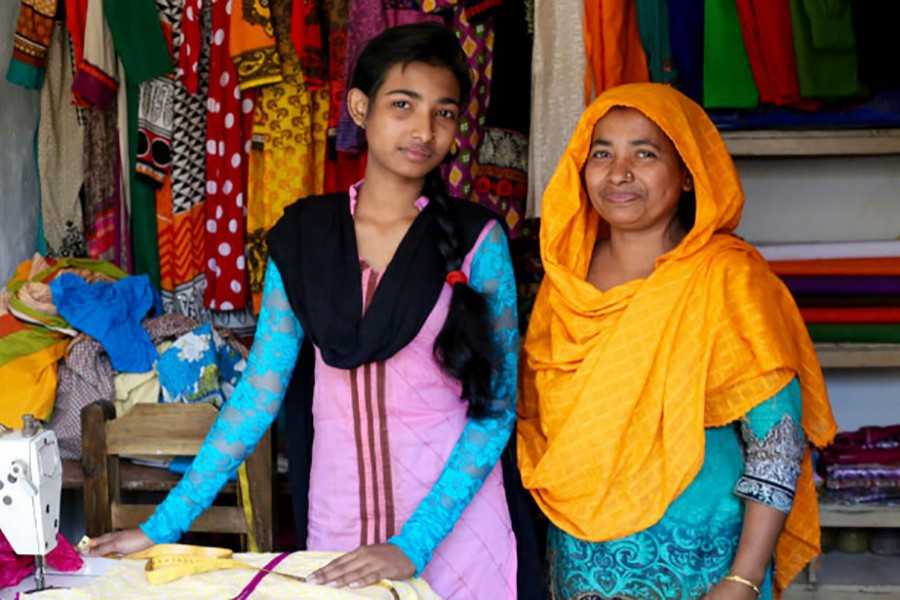Making SMEs more vigorous and vibrant

Collected
Small and Medium Enterprises (SMEs) play an important role in the monetary development of a country. Their role in conditions of production, employment generation, contribution to exports and facilitating equitable distribution of income is very critical. The potential of the SMEs is not fully utilised in Bangladesh.
Analysts say it is essential to provide SMEs appropriate policy support to develop the sector and increase SMEs' contribution to the country's GDP. The SMEs cannot thrive in Bangladesh because of some major challenges like lack of fiscal incentives, management problems, access to finance, policy inconsistency etc, they state. As of now, the contribution of SMEs to the gross domestic products (GDP) is merely 20.25 % in Bangladesh. A study conducted recently revealed that the proportion of SMEs to all enterprises is 80 per cent in Bangladesh, although it is 97.60 % in India, 99 % in China, 99.70 per cent in Japan and 60 per cent in Pakistan.
Bangladesh has 17,384 micro enterprises, 15,666 small ones, 6,103 medium and 3,639 large scale enterprises in which a total of 5.02 million people are engaged, says the analysis.
There are a few problems in the SME sector. Based on the study, if these can be resolved through methodical measures, the country's GDP will receive a significant contribution from this sector.
There is no denying that the country has an enormous opportunity in the SME sector. If the government or Bangladesh Bank can ensure loans for the SMEs, there will be a huge chance to reduce unemployment.
Usage of finance continues to be the primary obstacle for women-led small and medium enterprises as banks hesitate to lend to SMEs run by women. Women entrepreneurs complain that despite fulfilling the standards set to get loans, they are generally being denied the facility as bankers lack confidence about giving loans to them.
Some bankers admit that several genuine SME entrepreneurs didn't get loan. According to the Bangladesh Bank's (BB's) instructions, 20 % of all bank loans must go directly to the SMEs. However in reality, the entrepreneurs are not getting that amount of loans.
A lot of women entrepreneurs complained that they tried their finest to access bank credit, but almost all their efforts went in vain. Most of them fulfilled almost all of the requirements to get loans. Some organisations doing work for women's empowerment say they had received several complaints from women, saying the ladies were not getting loans.
Though it is said that banks disbursed an incredible number of taka as SME loans each year, SME entrepreneurs keep on saying that just a few of these got such loans. Lots of the borrowers getting loans are not real SMEs. Small entrepreneurs say this is a common problem to them. Bangladesh Bank should take initiatives so that the targeted amount actually goes to SME entrepreneurs.
This past year, a seven-day 'National Small and Medium Enterprise (SME) Fair-2019' was organised in the location for bringing the neighborhood small and medium entrepreneurs under a single square roof.
SME Foundation organised the fair with a view to promoting the SME products, exhibition and introduction of SME goods for expanding business, trade and commerce. A complete of 280 SME entrepreneurs, including 188 women entrepreneurs, exhibited their products at the fair where six best entrepreneurs were awarded.
The country's professional policy has, of late, determined SMEs as a thrust sector. The Ministry of Industries has setup an SME cell within the policy and strategy for the expansion of the SME sector.
The ministry has formed an SME panel with representatives from the private sector to help the government implement the advice of the SME Taskforce.
Meanwhile, the Federation of Bangladesh Chambers of Commerce & Industry (FBCCI) has taken up steps to acquire district-wise data to open a SME website. Additionally it is likely to turn its SME cell into an institute for the introduction of the SMEs.
Yet, what's true about the upcoming situation is the fact 35 per cent of core skills changes globally soon. Bangladesh, sooner or later, will also face the impact of change in core skills around the world shortly, experts say. To be able to address the emerging situation, the country's SMEs should adopt new technologies to improve their business, because they are the backbone of the economy. There can be an urgent dependence on bringing immediate change in technical and IT-related curriculum in universities as well as in technical and vocational training institutions, especially in the public universities.
The upcoming scenario is the fact about one-third of today's technical and IT-related skills and courses, taught in the Bangladeshi universities, will be replaced by the next five years due to disruption in the core skills globally.
The rate of skill changes across the globe is changing very fast. In Bangladesh, you will see a major effect on employment and wages due to these technological changes. You will see destruction, productivity and creation at exactly the same time. Scopes of job delegation to machines are higher than before because of the Fourth Industrial Revolution.
However, empowering the SMEs should be one of the priority areas and strategies of strengthening the country's monetary growth. However, a level-playing field for smaller businesses is very important to making employment and increasing opportunities for ladies and the indegent.
Source: https://thefinancialexpress.com.bd
Previous Story
- Bangladesh Bank to supply half of Tk 20,000cr...
- Tough times for seasonal traders in Barishal
- Allow SMEs to have post-IPO paid-up capital below...
- Coronavirus fallout: SMEs seek fiscal, financial support
- SMEs need urgent help too
- Variety of leather products woo visitors
- Lankabangla Finance participates SME Fair 2020
- We are in need of more research to...